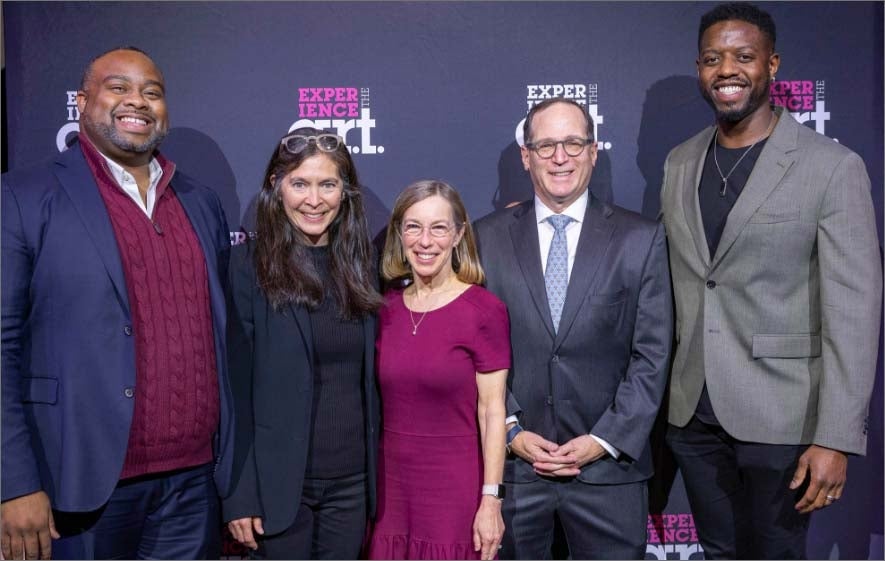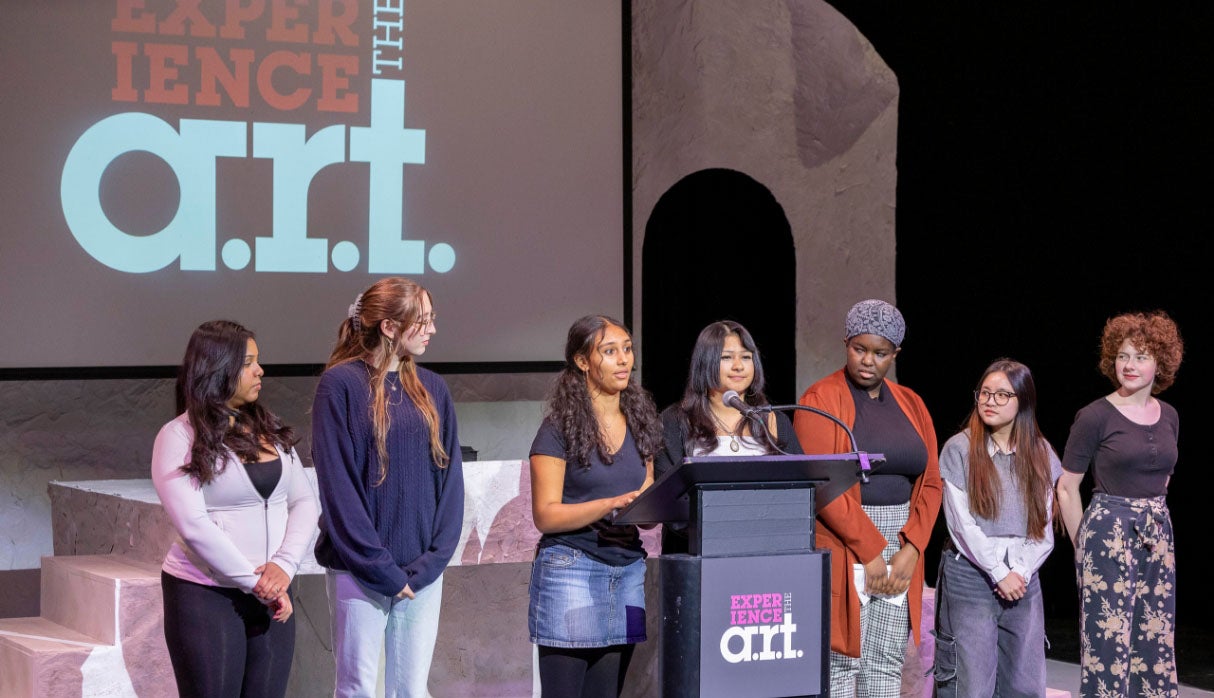Jeannie Bachelor Lavine AB ’88, MBA ’92 developed a deep connection to the theater at an early age: she has many happy memories of participating in musicals and plays as a child. Her husband, Jonathan S. Lavine MBA ’92, admittedly more of a spectator, fell in love with theater in college thanks to affordable tickets made available to students by his alma mater. The couple met on their third day as students at Harvard Business School and have been championing the arts together ever since.
Motivated by their shared passion for theater and a commitment to expanding access to the arts, the Lavines—who are longtime benefactors of the University, giving both their time and financial support across Harvard Schools—recently established the Lavine Learning Lab at the American Repertory Theater (A.R.T.) at Harvard University. Supported by a gift from the Crimson Lion/Lavine Family Foundation, the Lavine Learning Lab fosters intergenerational dialogue, community, and lasting relationships between the A.R.T. and public high schools in Greater Boston.
“Theater should not be something that is restricted by economic means,” says Jonathan.
“It tells stories, teaches us how to project, how to act, how to empathize with others, how to put ourselves in somebody else’s shoes—and we wanted to make sure the ability to both enjoy and participate in theater is open to everyone.”
Rooted in the A.R.T.’s core values of inquiry and collaboration, the Lavine Learning Lab uses A.R.T. productions as the foundation for student workshops that bridge the arts, humanities, and social and emotional learning. For each production, students take part in an introductory workshop at their school; a preshow workshop at the A.R.T. with another participating high school, followed by dinner and a performance; and a post-show, in-school workshop where they discuss their perspectives.
“Good stories do enlighten us and can change minds,” says Jeannie. “You have students with different backgrounds and different belief systems working together and engaging with theater—and the conversations that have come out of that have been pretty transformational.”
Instead of attending a morning matinee designated for school groups, Lavine Learning Lab participants see every show of the season at evening performances, seated alongside the general audience. This builds their familiarity with theatergoing and their sense of belonging at the theater.
“They’re sitting in an audience and in community with the most eclectic group of people, and it sends the message that we can all come together in experiencing the story and experiencing the moment,” says Jonathan.

“Good stories do enlighten us and can change minds. You have students with different backgrounds and different belief systems working together and engaging with theater—and the conversations that have come out of that have been pretty transformational.”
— Jeannie Bachelor Lavine AB ’88
In addition, two educators from each participating high school join a professional learning community, in which the A.R.T. facilitates ongoing collaborative learning and provides professional development so that these educators can enhance their own theater programs.
The couple hopes the Lavine Learning Lab has a ripple effect, serving as an exemplar that can be replicated in theaters throughout the country. They also see their support as a vote of confidence in the leadership of Terrie and Bradley Bloom Artistic Director Diane Paulus AB ’88.
“Not only is Diane a brilliant artistic talent, but she also has such a commitment to the values we’ve talked about,” says Jeannie. “We truly view ourselves as partners in her work.”
“The A.R.T.’s mission is to expand the boundaries of theater, always including the audience as a partner,” says Paulus. “Jeannie and Jonathan understand the importance of reaching young people in this work. They understand the transformative power of the arts, and in particular theater. Thanks to them, the Lavine Learning Lab serves as a gymnasium where high school students come to exercise their humanity so that they can become the most impactful citizens and participants in our society.”

